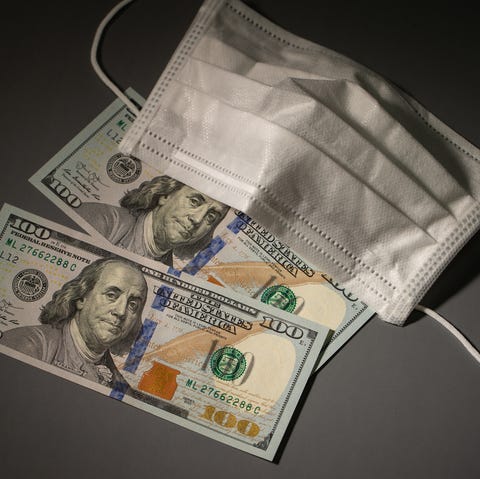What to Do if Your Stocks Are Crashing From the Coronavirus
If you haven’t been paying attention to the stock market over the last few weeks, good on you.
But if you have been paying attention to the stock market over the last few weeks—wild slides followed by an enormous uptick and then more seemingly unflagging losses—you’re probably not feeling so … good.
Arielle O’Shea wants you to know that whatever anxiety, stress, and frustration you’re feeling over COVID-19 and the stock market, is completely natural.

ma-no
O’Shea is the investing and retirement specialist for NerdWallet, a educational financial resource, and she’s seen these fluctuations—and the stress that arises from them—before. Many times.
“Whenever the market makes a big swing, people react, and they tend to follow the crowd,” O’Shea says. “People move as a herd. Panic induces more panic.”
O’Shea suggests a three-point plan to help alleviate your financial stress, preserve your longtime wealth, and stop Googling “dow” so obsessively.
Step 1: Give yourself a gut-check.

taa22
There’s a very good reason you feel stressed out: losing money sucks.
“The pain associated with losing money in the short term is far stronger than any joy you may feel that one day, far in the future, you will make money,” O’Shea says.
The stock market has, historically, always bounced back from lows—and to even higher peaks. So if you can resist the urge to press the panic button (in this case that’s a “Sell! Sell! Sell!” button) and instead use that energy to ask yourself a series of questions, you can right-side yourself before you create a disaster of your own making.
Those questions:
In most cases, if retirement is still decades away, you don’t have to do anything, O’Shea says. If you’re closer to retirement, then it’s time to talk to your financial planner.
Step 2: Go ahead, check your 401k. (But under one condition.)

AndreyPopov
“When the Dow loses 800 or 1,000 points in a one day, of course it’s natural to want to check your accounts. I did it the other day. I was curious,” O’Shea says.
But if what you find in your 401k demoralizes you, increase your contribution, if you can.
Yes, increase it.
“You’re controlling what you can control,” O’Shea says. Because staring at the numbers isn’t going to do anything to make them increase.
Step 3: Actively avoid financial news.

taa22
“I always tell people the best thing you can do is not pay attention,” O’Shea says. “The market is going to swing, and sometimes it will swing wildly.” It’s the nature of financials.
Turn off CNBC. Mute “dow,” “stock market,” and “S&P” in in your browser. Opt out of smartphone news alerts. Control your environment, O’Shea says.
Source: Read Full Article
